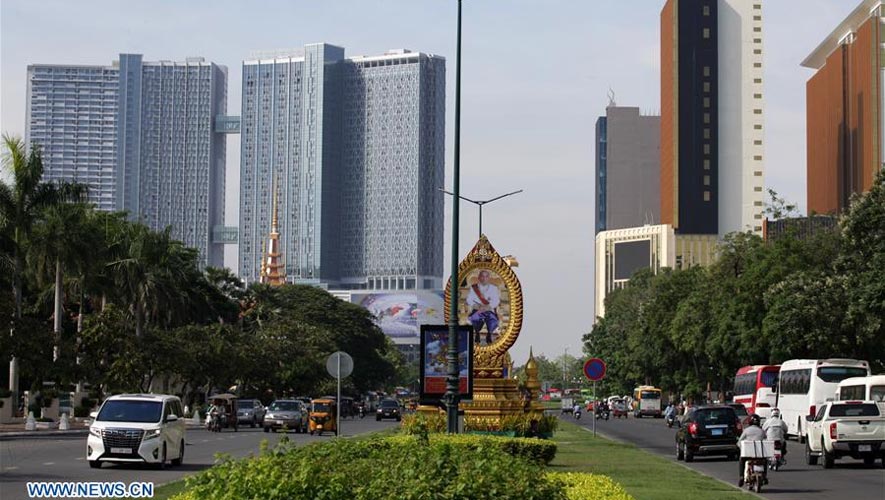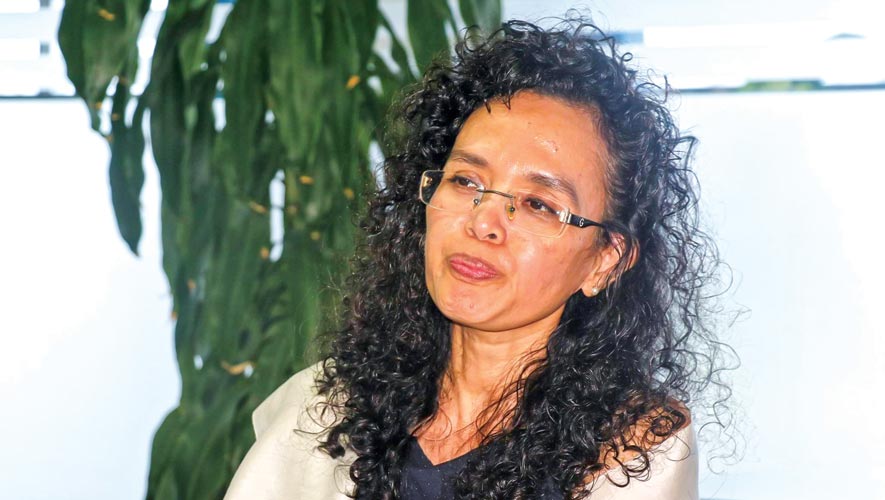Safety factor and economic impact on car distributors influence proposal on taxing used cars
For the latest Cambodian Business news, visit Khmer Times Business
Cambodia is one of the few countries in the region that has large imports of used vehicles. While the government plans to impose higher tax on the secondary vehicle market in order to promote more assembly plants to be set up here, it has yet to take off.
European Chamber of Commerce (EuroCham)’s White Book 2019 reiterates its recommendation for an investment policy that focuses on the rationalisation of taxation on secondhand vehicles.
Firsthand vehicle distributors in the luxury category face numerous challenges in raising new car sales annually due to increased secondhand imports.
James Zemke, general director of Star-Auto (Cambodia) Co Ltd and EuroCham automotive committee chairman, has been instrumental in the drafting of the policy with members of the Cambodia Automotive Industry Federation.
“Brand new car dealers have to compete with the secondhand car market which is a fraction cheaper. These parallel imports are our main competitors,” Zemke says.
Parallel imports are often referred to as grey product and are implicated in issues of international trade, and intellectual property.
“I have been operating for four years and I am still unable to open more sales centres,” Zemke says.
Impact of used car imports

Peter Brongers, Cambodian Automotive Industry Federation (CAIF) president, says that used car imports do not constitute a direct and major economic impact on new car distributors, but end users and the government.
Elaborating on the matter, he says that most of the used car imports comprise salvaged cars where the quality might be compromised. The US is one of the biggest “salvage car” exporters in the world.
“There are hundreds of websites with different formats (that sell used cars). Some conduct live auctions and stream bids that allow importers to purchase vehicles at some of the cheapest prices,” he says.
For instance, a Lexus RX300 2002 model can be bought for as low as $3,000 at a salvage auction while the current average price in Cambodia is approximately $18,000, according to data gathered by CAIF.
Brongers says that Cambodians could be putting themselves at risk by purchasing salvaged vehicles which do not come with warranties or guarantees. Often, customers don’t realise they are paying more per vehicle as it is of poorer quality.
This also leads to doubts about the legal compliance of used car importers such as value-added tax, profit tax and customs check.
“VAT is absorbed into customs calculation at the point of import based on import value. The VAT is offset at the point of sale where the base value is higher,” Brongers says. But this process does not apply to non-compliance importers.

Creating a win-win situation
The White Book recommends the implementation of an outright ban on secondary vehicle imports, meaning that vehicles of a certain age and ones that might not be roadworthy should not be allowed into Cambodia due to safety and legal reasons.
EuroCham also asked that the government look at an overall reduction in import duties and taxes so that consumers can access affordable cars.
CAIF believes that new vehicles that are imported by authorised dealers account for approximately 10 percent to 15 percent out of the total cars imported every year.
Brongers says that authorised importers are committed to a high level of compliance that enables the government to collect taxes efficiently.
“They normally provide factory invoices for tax calculation purpose, and invest in human and physical resources,” he says.
Meanwhile, the government has issued Prakas 150, which sets the technical regulation for 19 automotive products that includes safety purposes, accident prevention and technological limitation, following the adoption United Nations Economic Commission for Europe standards, as part of the Asean harmonisation process.
CAIF says that the regulation only applies to new cars that are imported by authorised dealers. However, used car and grey importers are exempted, indicating a selective enforcement approach of the law.
Laos and Myanmar banned and restricted the import of used cars in 2012 and 2017 in preparation for the adoption of UNECE regulation into their local context.
Brongers urges the Cambodian government to look into the restriction of used vehicle and improving the affordability of new vehicles via tax policies that can also raise tax revenues.




